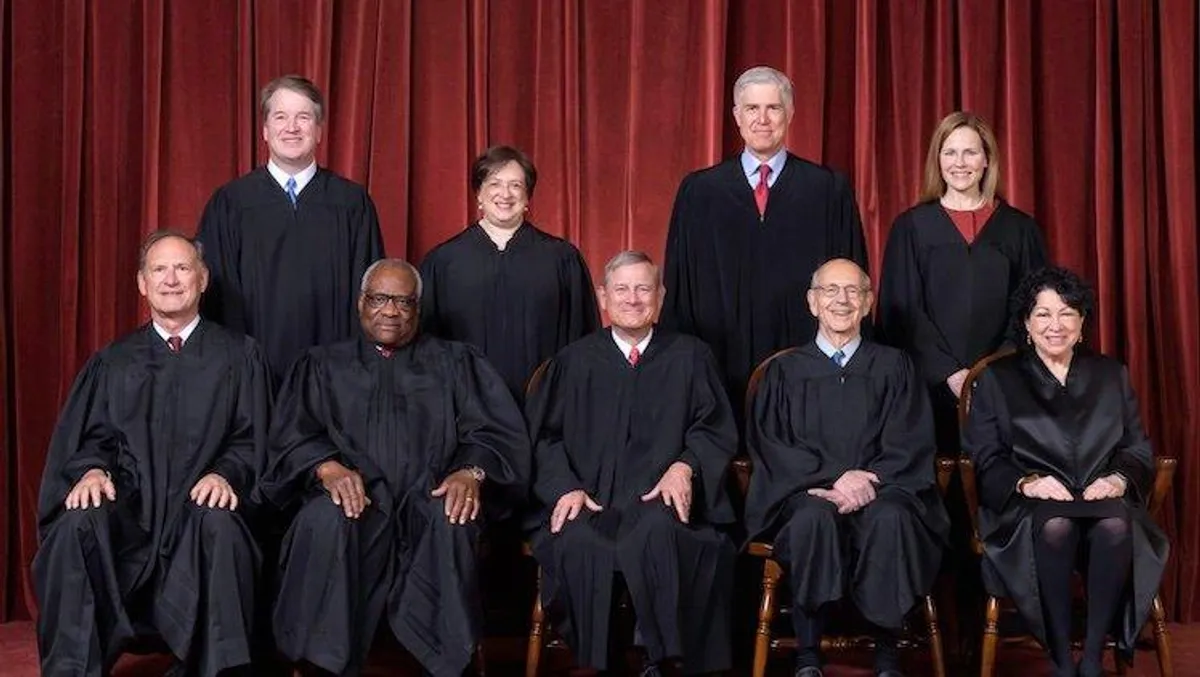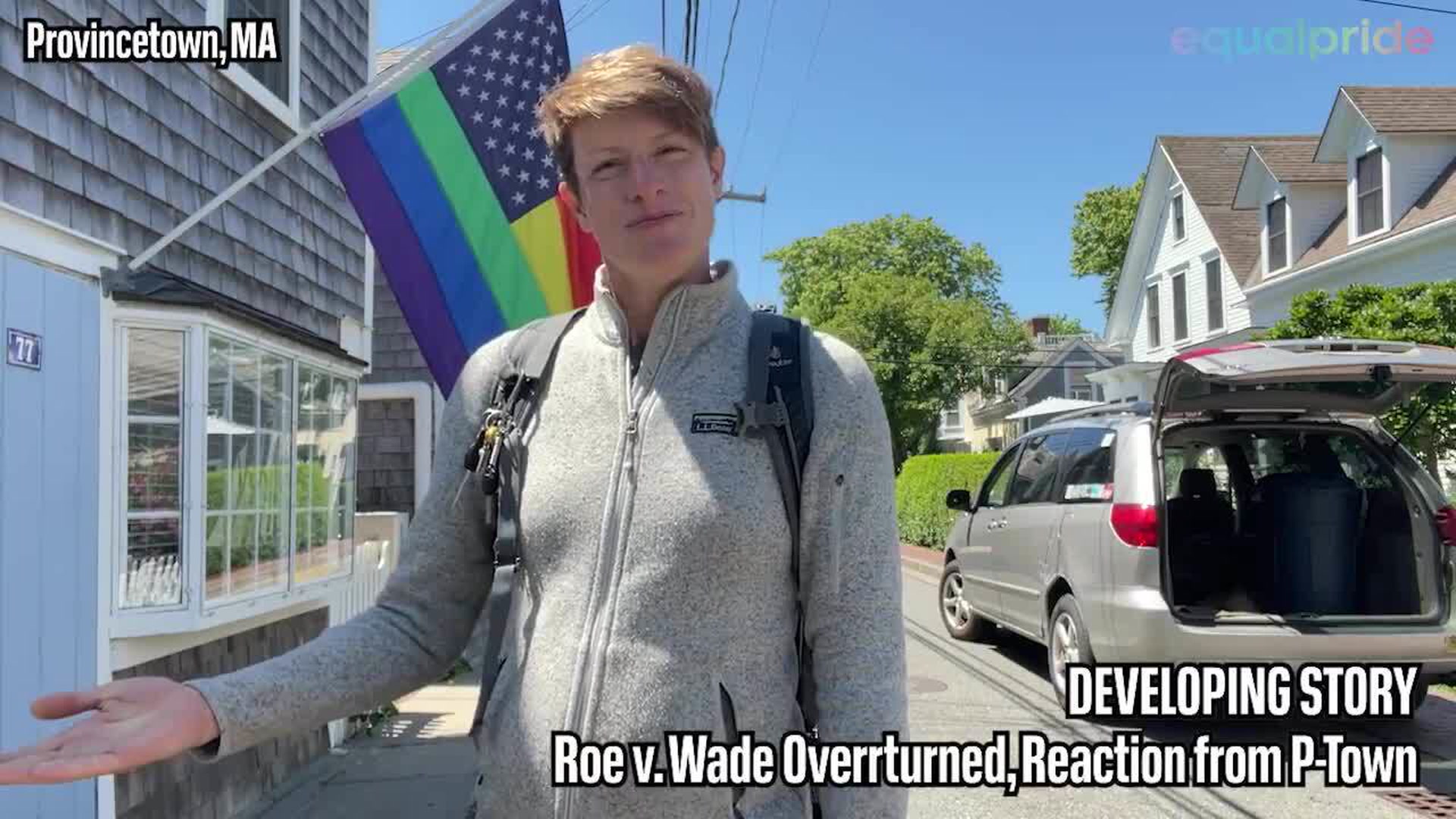
Photo by Fred Schilling. Collection of the Supreme Court of the United States
The decision has devastating implications for LGBTQ+ people.
June 24 2022 10:28 AM EST
May 31 2023 3:44 PM EST
trudestress
By continuing to use our site, you agree to our Private Policy and Terms of Use.

The decision has devastating implications for LGBTQ+ people.
The U.S. Supreme Court has done what many considered unthinkable, overturning Roe v. Wade, the 1973 decision that recognized abortion as a constitutional right.
This does not mean abortion will be outlawed nationwide, but it does mean any state can choose to ban it. It is likely to be banned in about half the states, mostly in the South and Midwest.
The 6-3 ruling came in the case of Dobbs v. Jackson Women's Health Organization, which involves a Mississippi law that bans most abortions after 15 weeks of pregnancy. The court heard the case in December, and a draft opinion, written by Justice Samuel Alito, was leaked to the press in May.
Related -- Check out more of the Advocate's news coverage on Pride Today:

The final opinion, released today, was written by Alito. He was joined by Justices Clarence Thomas, Amy Coney Barrett, Brett Kavanaugh, and Neil Gorsuch, and John Roberts, with Sonia Sotomayor, Elena Kagan, and Stephen Breyer dissenting.
"The Constitution does not confer a right to abortion; Roe and Casey are overruled; and the authority to regulate abortion is returned to the people and their elected representatives," the ruling reads.
The ruling has grave implications, and not just for cisgender straight women. LGBTQ+ people who can become pregnant need access to abortion. Also, it means all rights to bodily autonomy are threatened -- the right to assisted reproduction, to private consensual sex, and to marry the person of one's choice. Alito and Thomas have already expressed a desire to overturn Obergefell v. Hodges, the 2015 ruling that legalized same-sex marriage nationwide.
Story developing...